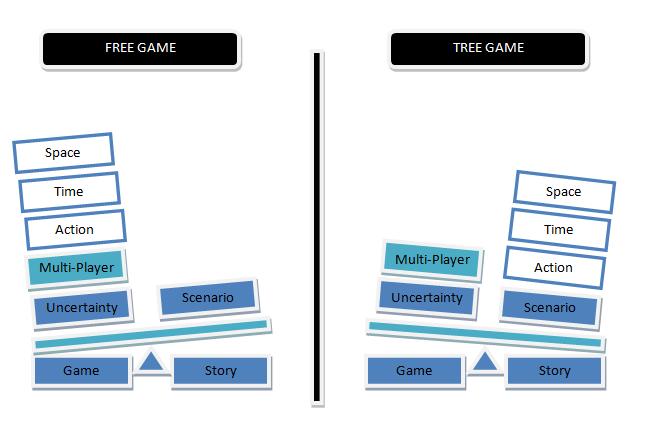Original post : http://www.electro-gn.com/309-ledebutetlafindunjeu
Translation : Karine Coquelin and Bruno Cailloux
The way to start differs from one game to another. It may be either brutal or flexible. A brutal start will confront the players with an initial situation and will give a precise start signal. This situation may not be the same for everyone, but each of the players will be in a given spot, with a given situation to deal with. Time is like frozen before the bell rings. It’s the “pre-game situation” which usually follows the one the player left his character with at the end of his background. The game starts, and each player develops the situation through his character.
A flexible start is possible if the players can decide when their character enters the game. This method is usually used when the characters are not all already present at the ingame location. They can then enter the game little by little, either on their own initiative or when the organizers tell them to. Passed a certain point, the game has started, and players may play their parts.
How do we know when the game stops? Who says when and how it’s over? These questions must be addressed by the organizers at some point; preferably before the game, when preparing the script. As with the beginning, the end of a game can be brutal or flexible. In case of a flexible one, the players decide for themselves when they wish to leave the game. The transition may happen, for example, when they go to bed. Their character goes to bed and wakes up the next morning very naturally. Then it’s up to the player to decide when he thinks the game deserves to end. The flexible end of game does not stop the gamers’ role-play like a bell, right in the middle of an action they enjoy. Most of the time, the organizers can’t watch nor supervise the whole game. They therefore can’t hope to be able to find the ideal moment to put an end to it, at least not without disappointing one or more players. However, using this flexible method requires a plausible diegetic (which pertains to the game universe) reason. Indeed, when going to bed, a player deprives the others of his presence, which is very unlikely in reality. His character disappears from the game. He should only be permitted to do so if his character can’t be reached by the others. He may have left the location representing the game site, be dead or have been teleported, but his absence must be explainable to the other characters.
The brutal method without script consists in ringing the end of the game at a precise moment, whether it was previously announced or not. The players may know that the game will end at a specific given time and therefore can do their best not to be in the middle of a scene. If it has been announced in advance, this method allows each and everyone to deal with his remaining game time and helps not to be deprived of a scene his wanted. A brutal ending may however be written, which doesn’t make it impossible to set a precise time and to tell the players about it. In that case, the ending calls for a specific happening to be used as closure. The scene may contain enough extra diegetic information (or not) to tell the players about its purpose. This happening may be scheduled, triggered by default, but also be a direct consequence of the players’ actions. They indeed can influence the moment of this ending scene and/or the way it happens.
Five possible ending models can be proposed for a LARP:
Brutal with script, adaptable
A scene indicates the end of the game to the players. It is adaptable because it varies according to the characters’ actions during the game.
Example: The game ends when a king is crowned. The king has been chosen by the characters who are influent people in the kingdom.
Brutal with script, not adaptable
A scene indicates the end of the game to the players. It’s determined in advance, and the players can’t influence its course whatsoever.
Example: The game ends when the Cavalry arrives.
Brutal without script
An extra diegetic announcement informs the players that the game is over.
Flexible with script
The players decide when their character leaves the game, and is has a logical explanation in the script.
Example: The players are executives in a big company, they may leave at any time after 6 pm.
Flexible without script
The players decide when their characters leave the game, even if it has no logical explanation in the script.



